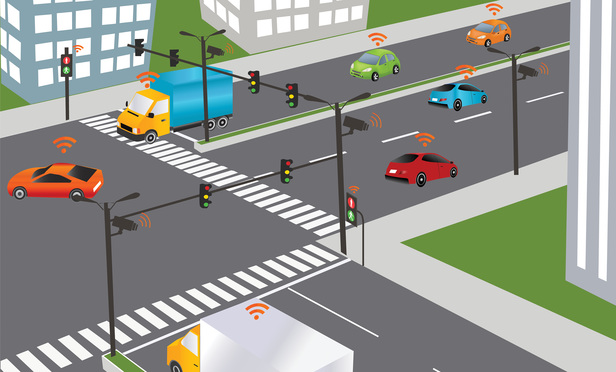The National Highway Traffic Safety Administration (NHTSA) has proposed rules that will require new cars to have a special communication system that links them with other vehicles (V2V) or to infrastructure such as traffic lights (V2I). Collectively, the technology is known as V2X. Using a short-range wireless network, cars will be able to tell each other where they are and (more important) where they are going. Each car on the V2X network will broadcast its speed, heading and brake status up to 10 times per second and will receive similar broadcasts from the vehicles around it. This will allow vehicles to “see” around corners. Or around the large trucks and campers that always seem to be parked at the corner of residential intersections. With V2X, instead of slowly easing into the intersection until you can see whether a car is approaching, your car will already know. And so will the approaching vehicle. Each driver will be warned of the possible collision.
V2X is an important step toward autonomous vehicles. It has a greater range than the cameras and radar systems that semiautonomous vehicles currently use and is not limited to line of sight. V2X will help to supplement the existing and future technologies that will be used by fully autonomous vehicles. Even standing alone, V2X is predicted to prevent thousands of accidents per year.
This content has been archived. It is available through our partners, LexisNexis® and Bloomberg Law.
To view this content, please continue to their sites.
Not a Lexis Subscriber?
Subscribe Now
Not a Bloomberg Law Subscriber?
Subscribe Now
LexisNexis® and Bloomberg Law are third party online distributors of the broad collection of current and archived versions of ALM's legal news publications. LexisNexis® and Bloomberg Law customers are able to access and use ALM's content, including content from the National Law Journal, The American Lawyer, Legaltech News, The New York Law Journal, and Corporate Counsel, as well as other sources of legal information.
For questions call 1-877-256-2472 or contact us at [email protected]



